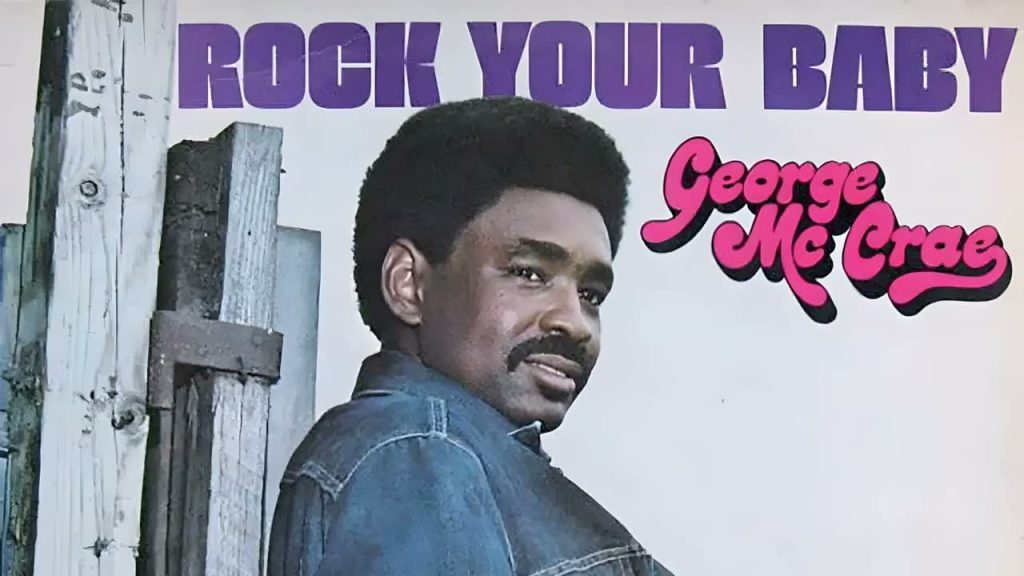
“Rock Your Baby” – George McCrae’s Pioneering Disco Hit That Defined a Generation
Released in 1974, “Rock Your Baby” by George McCrae became one of the first major hits of the disco era, blending soulful grooves with a smooth dance beat that would lay the foundation for future disco classics. Written by Harry Wayne Casey and Richard Finch of KC and the Sunshine Band, the track hit No. 1 on the Billboard Hot 100 and topped charts in over 50 countries, including the UK and Canada. Beyond its commercial success, “Rock Your Baby” became a cultural touchstone, marking the transition from soul and funk to the burgeoning disco movement.
From the first beat, “Rock Your Baby” captivates listeners with its infectious rhythm and laid-back groove. The song opens with a sultry drum machine loop—a rarity at the time—and a smooth, hypnotic guitar riff that sets the mood for McCrae’s velvety falsetto. McCrae’s voice floats effortlessly over the track, delivering lyrics that invite intimacy and movement. His warm, soulful delivery contrasts beautifully with the steady beat, creating a dreamlike atmosphere that feels both sensual and celebratory.
The song’s lyrics are simple but effective: “Woman, take me in your arms, rock your baby.” This refrain, repeated throughout the track, evokes a sense of comfort and desire, as if dancing with someone could provide solace and escape. There’s a sense of unity in the song’s message—a call to let go, move together, and find joy in connection. This emotional simplicity, paired with the song’s hypnotic groove, is what gives “Rock Your Baby” its timeless charm.
Musically, the song was groundbreaking. The steady beat, provided by an early Rhythm King drum machine, was a major innovation for the time and signaled the shift toward more electronically-driven music that would come to define the disco era. The production, lush with soulful guitar, subtle keyboards, and bass lines that glide beneath the surface, creates an elegant and understated soundscape. Unlike the energetic horns and flamboyant arrangements of many other disco tracks, “Rock Your Baby” is smooth and restrained, making it feel intimate and inviting.
At the time of its release, George McCrae was relatively unknown, but the success of “Rock Your Baby” catapulted him to international stardom. The song’s infectious groove and sensual vibe struck a chord with listeners worldwide, and it quickly became one of the biggest hits of 1974. It spent two weeks at No. 1 on the Billboard Hot 100 and topped the UK Singles Chart for three weeks. Notably, it sold over 11 million copies, making it one of the best-selling singles of the decade.
“Rock Your Baby” also played a crucial role in shaping the future of disco music. Its success demonstrated that dance tracks with electronic elements and subtle, soulful vocals could dominate the charts. In fact, John Lennon once remarked that the song influenced the writing of The Beatles’ “Whatever Gets You Thru the Night”—a testament to its far-reaching impact. Moreover, its rhythmic style and production techniques became blueprints for later disco hits by artists like Donna Summer and Barry White.
Even though the disco craze faded by the early 1980s, “Rock Your Baby” has maintained its status as a dance-floor classic. Its groove remains irresistible, and the song continues to find new life in film soundtracks, commercials, and DJ sets. The timelessness of McCrae’s smooth falsetto and the song’s steady rhythm means it can still bring people to their feet, transcending generations and genres.
In the end, “Rock Your Baby” is more than just a hit single—it’s a testament to the power of simplicity in music. With minimal production and straightforward lyrics, the song captures the essence of joy, intimacy, and movement. It reminds us that sometimes, all you need is a groove, a partner, and the moment to let the music carry you away. As long as people feel the need to dance, George McCrae’s classic will remain a cherished anthem of love, rhythm, and connection